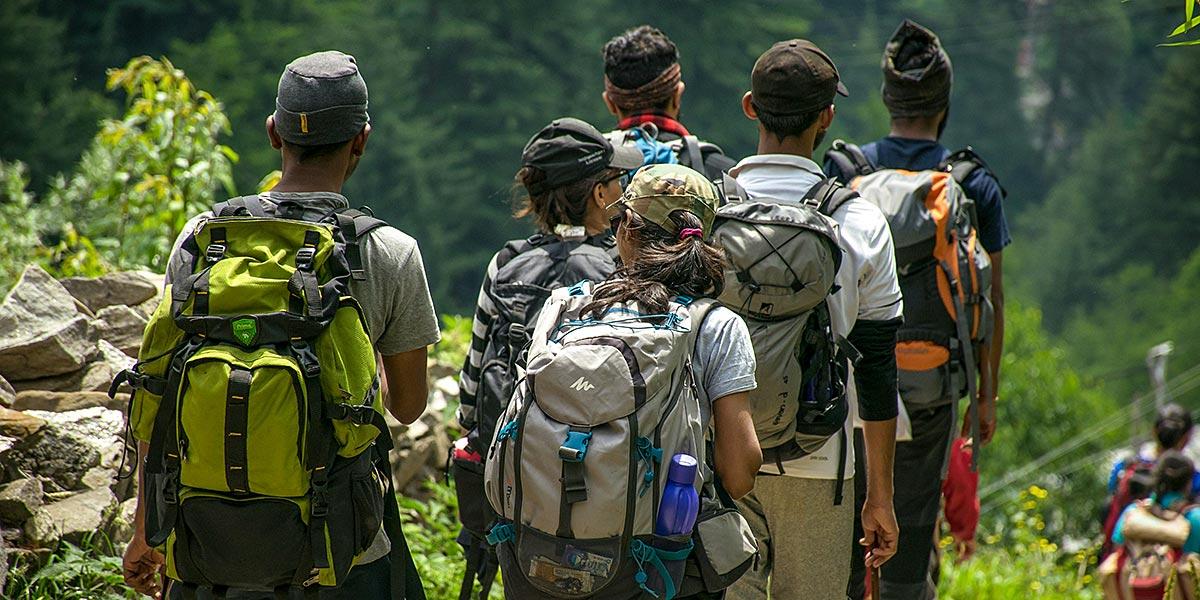
Blog for Zipline Attraction in the Smoky Mountains
Located in Pigeon Forge, TN and near Gatlinburg and Sevierville.
Leave No Trace: How to Respect Nature While Hiking in the Smokies
By Ross Bodhi Ogle
Posted on January 14, 2025

The Great Smoky Mountains, with their breathtaking views, diverse ecosystems, and rich history, draw millions of visitors each year. Whether you're trekking along the Appalachian Trail, exploring the Roaring Fork Motor Nature Trail, or simply enjoying a quiet moment by a mountain stream, the Smokies offer a sanctuary for outdoor lovers. However, as more people venture into these natural wonders, the responsibility to protect and preserve the environment has never been more critical.
One of the best ways to ensure that the Smokies remain as pristine as possible is to follow the Leave No Trace (LNT) principles. This set of seven ethical guidelines helps hikers and outdoor enthusiasts minimize their impact on the environment, ensuring that future generations can experience the same beauty we enjoy today. So, how can you hike responsibly in the Smokies? Here's a look at the core LNT principles and how to apply them in this beloved national park. On your next zip line adventure, you might check out a few hiking trails.
1. Plan Ahead and Prepare
Good planning is the first step to responsible hiking. The Smoky Mountains, while accessible, can also be unpredictable-weather can change quickly, and trail conditions can be challenging, especially in the higher elevations. Before hitting the trail, check weather forecasts, trail conditions, and potential hazards. Make sure your gear is appropriate for the hike and your skill level.
Being prepared also means respecting the park's rules. Some areas of the Smokies require permits for backcountry camping, and there are regulations regarding fires, food storage, and other activities. Research and familiarize yourself with these rules to avoid any unnecessary impact.
2. Travel and Camp on Durable Surfaces
When you're hiking through the Smokies, stick to established trails and campsites. Avoid cutting across switchbacks or creating new trails, as doing so can cause soil erosion and disturb fragile plant life. Off-trail hiking may seem appealing, but it damages the ecosystem by compacting soil and harming vegetation.
In the backcountry, camp only at designated campsites to reduce the impact on natural habitats. If camping outside of designated areas is allowed, follow the practice of “camping lightly” by choosing durable surfaces-rock, gravel, or sand-over soft soil or meadows. This helps preserve sensitive ecosystems, such as wildflower meadows and wetlands.
3. Dispose of Waste Properly
This is one of the most critical aspects of LNT. While hiking, you may encounter many types of waste-food scraps, toilet paper, and the more obvious human waste. The Smokies have clear guidelines about this: Pack out everything you bring with you.
Trash: Pack out all trash, even biodegradable items like apple cores and banana peels. These materials may decompose, but they still disrupt the natural process and can attract wildlife.
Human Waste: In backcountry areas, bring a trowel to dig a 6-8 inch deep “cathole” for waste, or use a portable toilet system (such as a WAG bag). Avoid defecating near streams, rivers, or trails to protect water quality.
4. Leave What You Find
The Smokies are home to a wide variety of plants, animals, and natural features, many of which are rare or protected. Respect the natural environment by not picking flowers, disturbing wildlife, or removing rocks or other natural objects.
This principle extends to the park's rich cultural history. Many structures, relics, and artifacts are found throughout the park, remnants of the Appalachian community that once lived in the Smokies. Take only photographs and leave the past undisturbed.
5. Minimize Campfire Impact
Campfires are a cherished part of the outdoor experience, but they can also have a significant impact on the environment. In the Smokies, campfires are only allowed in designated fire rings in established campsites. Fires can scar the landscape, deplete precious firewood resources, and contribute to air pollution. Instead, use a camp stove for cooking when possible.
If you do build a fire, use small, dead wood that you find on the ground, rather than cutting live vegetation. Keep fires small and manageable, and always make sure it's completely extinguished before leaving the area.
6. Respect Wildlife
The Smoky Mountains are teeming with wildlife, including black bears, white-tailed deer, wild turkeys, and countless species of birds, amphibians, and insects. While it's thrilling to see animals in their natural habitat, it's important to maintain a respectful distance.
Do not feed wildlife: Feeding animals can alter their natural behavior and make them more likely to approach humans, creating dangerous situations for both the animals and the hikers.
Store food properly: When camping, store your food and scented items (like toiletries) in bear-proof containers or hang them in a tree at least 10 feet above the ground and 4 feet from any tree branches. This keeps both you and the animals safe.
7. Be Considerate of Other Visitors
The Smokies are a popular destination, and you'll likely encounter fellow hikers, campers, and nature lovers. Respecting other visitors is a key part of LNT, and it's as simple as being courteous on the trail. Yield the trail to others, especially when hiking uphill, and avoid loud noises that could disturb the peaceful environment.
Additionally, keep your pets on a leash and be sure to clean up after them. Not everyone is comfortable around animals, and their waste can harm the environment and other hikers.
Conclusion
The Smoky Mountains are a true gem in the American wilderness, and it's up to each of us to ensure they remain beautiful and accessible for future generations. By following the Leave No Trace principles, we can all contribute to the preservation of this stunning ecosystem. Remember, when you step into nature, you're a guest in someone else's home-treat it with the care and respect it deserves.
So, next time you hit the trail in the Smokies, keep these guidelines in mind and enjoy your adventure with the knowledge that you're helping to protect one of the most treasured natural landscapes in the country.
Happy hiking, and leave only footprints!

